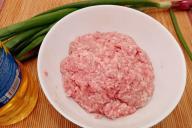For many, pineapple has become a familiar fruit on the table.
Its aromatic pulp combines with a wide range of products, allowing you to create new flavors.
Throughout its history, this plant has not only earned recognition in cooking, but has also become surrounded by some myths.

How did pineapple earn its popularity, and which of its properties can be beneficial, and which can be harmful to health?
Benefits of Pineapple
Pineapple contains a large number of useful vitamins, and its fiber promotes rapid digestion of food.
The potassium salts contained in this fruit can help reduce swelling, which indicates a diuretic effect.
Bromelain is an enzyme that has blood-thinning and anti-inflammatory properties.
High concentrations of this substance are found in fresh pineapple fruits and stems. Heat treatment destroys this enzyme.
Harm of pineapple
If you eat a large amount of pineapple in one meal, the acid in the fruit can irritate the lining of your mouth, leading to sores.
Also, in people with increased acidity of gastric juice, bromelain can provoke an exacerbation of chronic diseases of the digestive tract.
Pineapple should be introduced into the diet of small children with great caution, since this fruit is an allergen.
Myth
For a long time, pineapple was considered a fat burner. Over time, it turned out that the enzyme bromelain does help to lose weight, but by breaking down proteins. This is what is useful in the fight against extra pounds.
Previously, they gave advice on how to bake pies so that they don’t burn .








